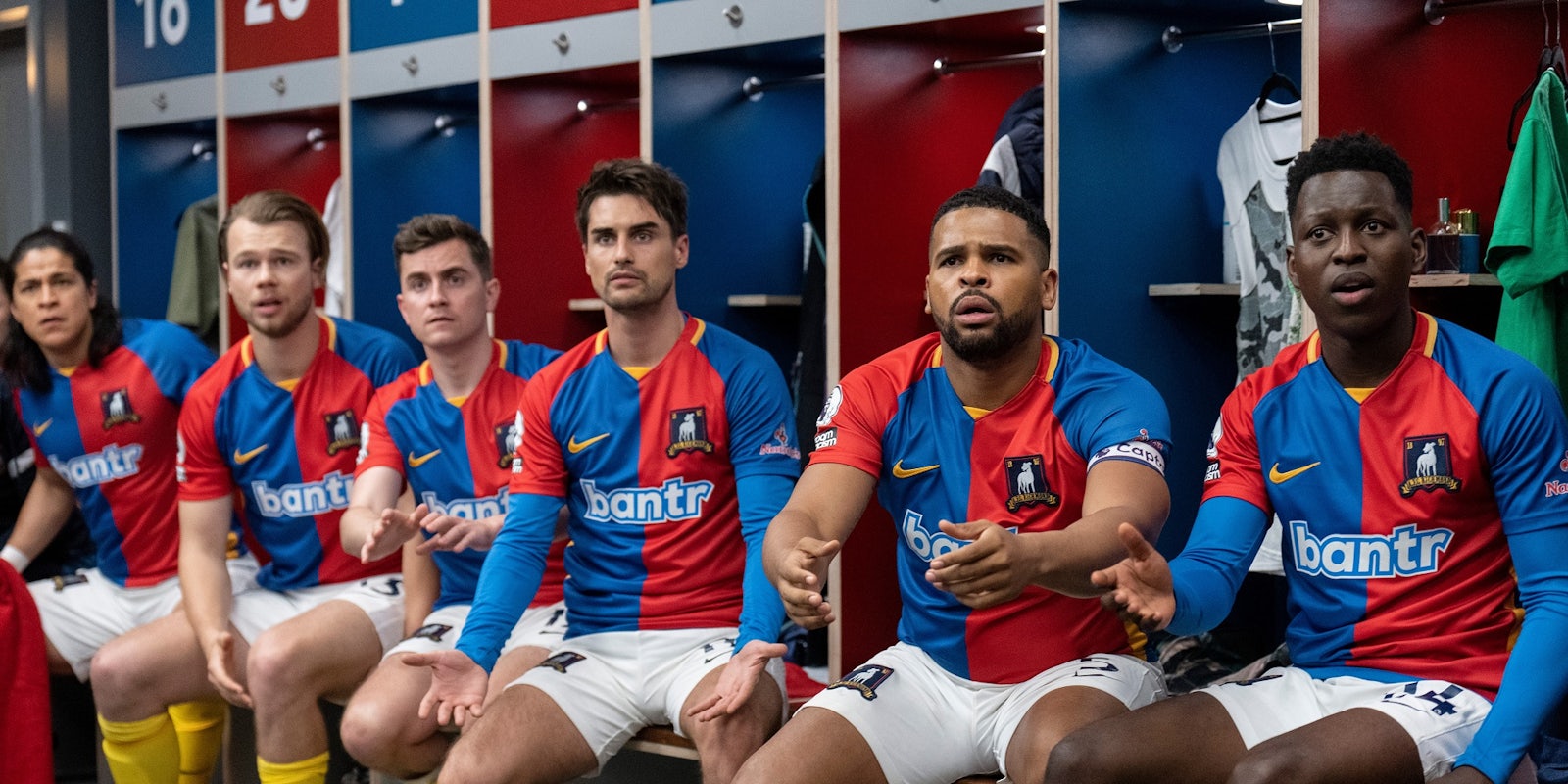Compared to the glowing reception earned by season 1, the tide has definitely turned against Ted Lasso. Delayed due to extensive rewrites, season 3 has faced criticism for its hour-long episodes and patchy writing—among other issues. One scene is earning particular pushback this week, with viewers comparing it to cringey vintage sitcoms and workplace training videos.
Posted by a Ted Lasso fan on Twitter, this scene involves the show’s soccer team discussing the ethics of taking and sharing nude photos. It’s an on-brand topic for Ted Lasso, whose defining trait is heartwarming depictions of non-toxic masculinity.
Flipping the script on our expectations for locker-room talk, the team of lovable himbos share advice on why it’s wrong to keep or distribute nudes without a woman’s consent. Unfortunately, the writing is pretty clunky. “Copyright law on private photography is quite murky,” remarks one guy (such naturalistic dialogue for a football lad!), with his teammate replying, “It’s not about the law. It’s about doing what is right. Like in Les Miserables.” Then someone else responds with an enthusiastic Les Mis reference. Okay.
Others compared it to cringey writing in Glee, Degrassi, or “a school assembly skit.” Some detractors also highlighted the contrast between Ted Lasso‘s squeaky-clean brand and messy reality of Jason Sudeikis’ personal life, including speculation that he is “using this show as a way to rehab his image” amid his split from Olivia Wilde.
Fans of HBO’s Barry seem particularly critical because the two shows go head-to-head during awards season—an increasingly absurd rivalry because the critically-lauded Barry is so bleak that some people argue it shouldn’t be classified as comedy. Both shows have received numerous Emmy nominations, but Ted Lasso won Outstanding Comedy Series for the past two years.
Even among those who still watch and love the show, this one scene still isn’t earning many compliments, with a few fans begging outsiders not to judge Ted Lasso by a few bad lines of dialogue. In fairness, this kind of stilted moralizing has a long history in the sitcom genre, typified by “very special episode” storylines about hot-button issues. The problem is, this isn’t something people expect from an award-winning prestige show like Ted Lasso, whose heartwarming and/or educational messages are meant to be a bit more subtle.



